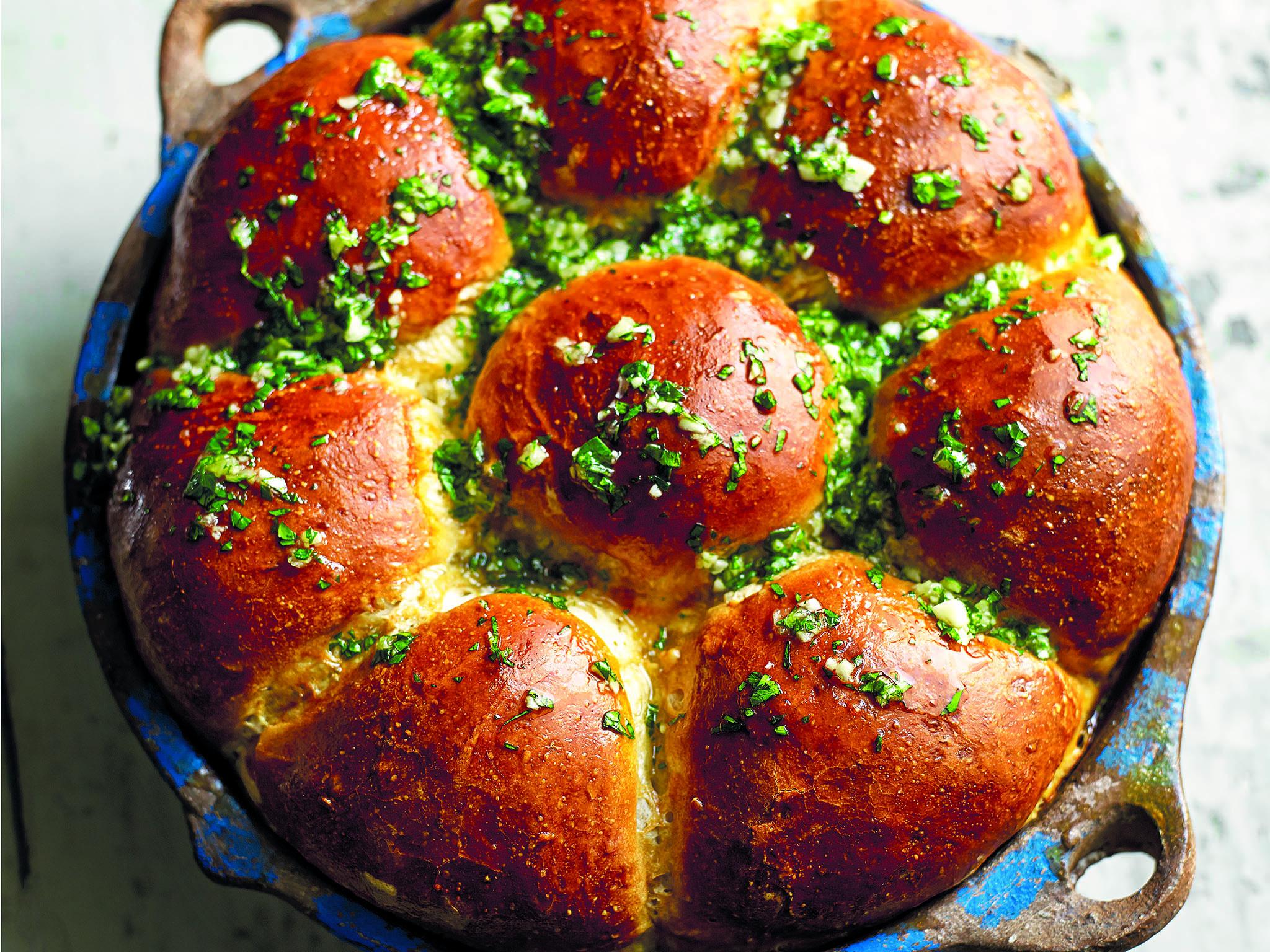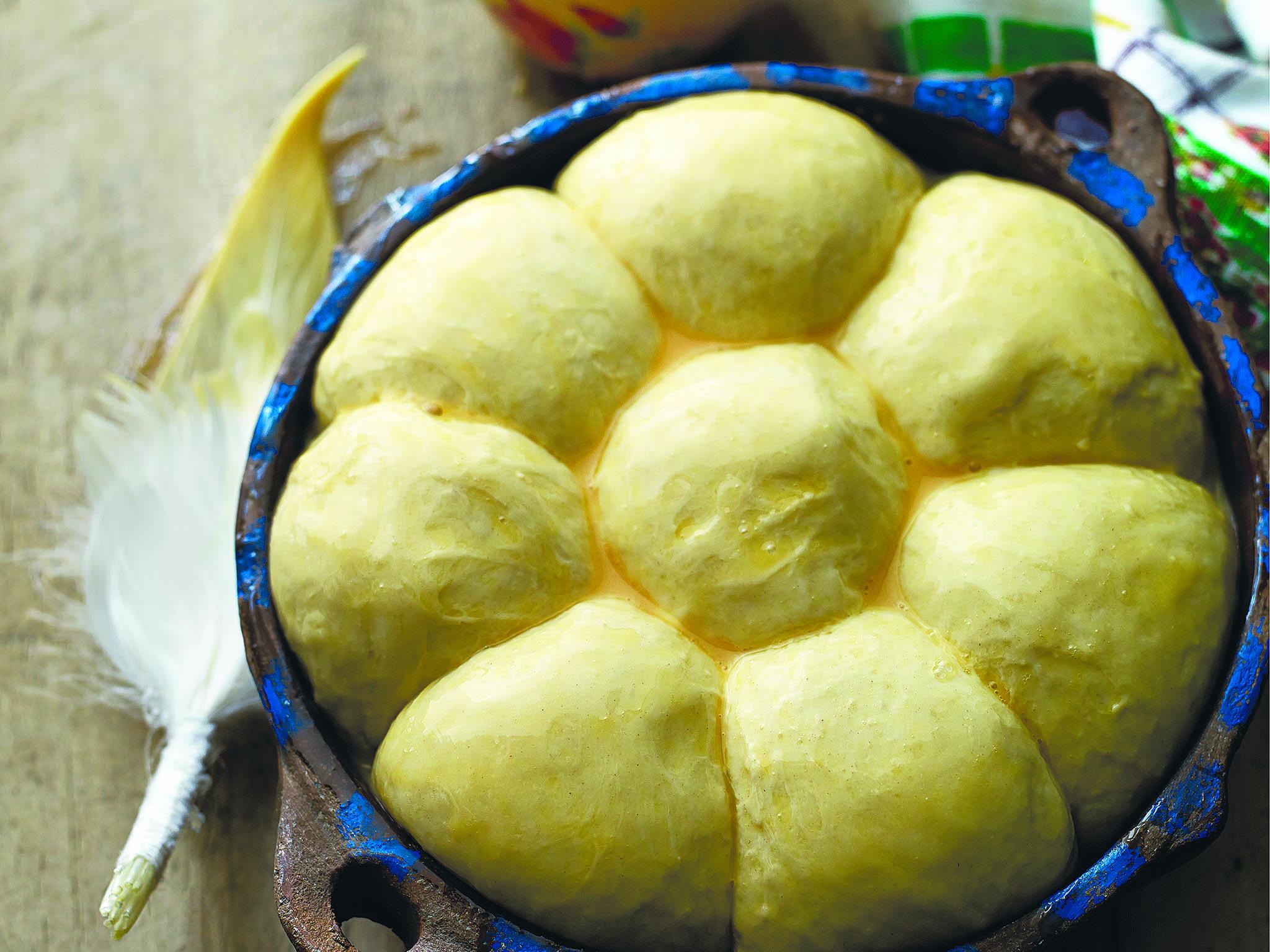Cookbook Confidential: Olia Hercules, Mamushka: ' why we need Ukrainian cooking'
In the latest edition of our Cookbook Confidential, Julia Platt Leonard reviews Mamushka and dispels myths that Ukrainian food is grey and bleak

Your support helps us to tell the story
From reproductive rights to climate change to Big Tech, The Independent is on the ground when the story is developing. Whether it's investigating the financials of Elon Musk's pro-Trump PAC or producing our latest documentary, 'The A Word', which shines a light on the American women fighting for reproductive rights, we know how important it is to parse out the facts from the messaging.
At such a critical moment in US history, we need reporters on the ground. Your donation allows us to keep sending journalists to speak to both sides of the story.
The Independent is trusted by Americans across the entire political spectrum. And unlike many other quality news outlets, we choose not to lock Americans out of our reporting and analysis with paywalls. We believe quality journalism should be available to everyone, paid for by those who can afford it.
Your support makes all the difference.When Olia Hercules said she wanted to dispel the myth that Ukraine is "vast, grey, and bleak" she could have been looking straight at me. But I reckon I’m not the only one who thought Ukraine = cold, nor the only one who wondered if we really needed a book on Ukrainian cooking. Turns out she was right and I was definitely wrong.
Olia sets the record straight in her debut cookbook, Mamushka – Recipes from Ukraine & beyond. The beyond is key as Ukraine is bordered not only by Russia but also Belarus, Poland, Slovakia, Hungary, Romania and Moldova. Olia’s hometown of Kakhovka is only two hours from the Crimean border and an hour by plane to Turkey. The resulting culinary landscape is a rich mix of flavours, ingredients and cooking techniques that surprises and delights.
Olia’s personal history is equally rich. Her paternal grandfather is Siberian, her mother has Jewish and Bessarabian roots, her father was born in Uzbekistan and she has many Armenian relatives – all with recipes that Olia shares. So you’ll find dishes like Moldovan lazy flatbreads that her grandmother made or Ukrainian stuffed buns prepared by her mum and Aunt Zhenia that she ate, ravenous after a day spent at the Sea of Azov. And when you make her Garlicky Georgian poussins, you can’t help but think of her mum using her dad’s old fashioned circus dumbbells as a weight.
Olia’s Ukraine is a place of mild winters and long summers, where produce grew in abundance with tomatoes "the size of a small grapefruit". Sometimes, the recipes come straight from dishes she grew up with while others are inspired by a memory, say the fried sunflower seeds she’d eat sitting by the fire. She’d crack the shells with her teeth then pop the seed out with her tongue. In Mamushka, that memory is translated into her Cabbage slaw with toasted sunflower seeds.
It’s not surprising to find lots of recipes for fermented pickles, preserves and sweet conserves, since eating by the season and preserving the surplus happened by default. Olia says she only barely restrained herself from including five recipes for fermenting tomatoes, in the end only including two. With half the country’s crop of watermelon grown in the region where she’s from, recipes like Watermelon skin jam are a natural too.
If, as she says her goal in writing Mamushka was to "…give the messy geo-political mosaic a human face" then Olia has succeeded in spades. She’s also done something more – made you hungry and eager to cook and eat the dishes she loves like her "death row dish" of Varenyky or Stuffed Ukrainian pasta that "serves 4 or 1 hungry Ukrainian." Drooling over the photograph I couldn’t help but hope she’d make a double batch and share it with me.
Ukrainian garlic bread
Пампушки | Pampushky
The word pampushka can be used to describe a gorgeous plump woman and is one of my favourite words. Pam-poo-shka! These pampushky are traditionally served with red borshch (see page 12). In Ukraine, we would use regular garlic, so if you can’t find wet (new) garlic don’t worry – it will still be delicious.

Makes 8 breads
15g (½ oz) fresh yeast or 7g (¼ oz) dried
active yeast
1 teaspoon caster sugar
225ml (7½ fl oz) warm water
400g (13oz) strong white flour,
plus extra for dusting
8g (⅓ oz) fine sea salt
3 tablespoons sunflower oil, plus extra for oiling
20g (¾ oz) wet (new) or regular garlic, crushed
½ bunch of parsley, finely chopped
1 duck (or chicken) egg, beaten, to glaze
First make a ‘sponge’, which is a type of yeasty starter. Dissolve the yeast and sugar in the measurement water (make sure it’s blood temperature – hot water would kill the yeast!). Add 200g (7oz) of the flour and mix roughly. Cover with clingfilm and leave to prove in the refrigerator overnight.
The next morning, add the rest of the flour and fine sea salt to the starter and knead on a well-floured work surface until the dough is smooth and comes away from your hands easily. Divide the dough into 8 pieces and shape into round buns. Put them side by side in an oiled round ovenproof dish or a 24cm (9½ inch) round cake tin, cover and let them prove again, this time in a warm place, until doubled in size. They will join together just like hot cross buns do.
Meanwhile, preheat the oven to 220°C/425°F/Gas Mark 7. To make the basting oil, simply stir the crushed garlic through the oil with a small pinch of sea salt and the parsley, then let it infuse.
When the pampushky look plump and ready, brush them generously with some beaten egg to glaze and bake for 20–25 minutes or until they form a glistening golden crust. Take them out and baste them with the garlic oil. Serve immediately.
Join our commenting forum
Join thought-provoking conversations, follow other Independent readers and see their replies
Comments